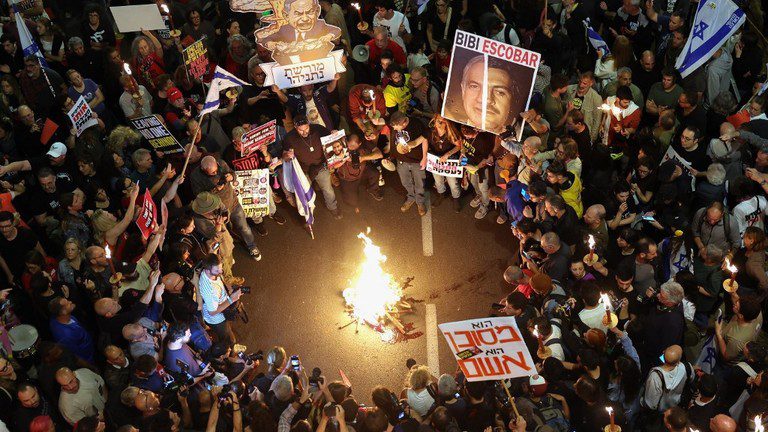World
Israeli Demonstrators Call for Netanyahu’s Prompt Replacement”

In Tel Aviv, a massive gathering of protesters took place, with organizers estimating that around 100,000 people participated.
The demonstrators, carrying Israeli flags and voicing their discontent with the government, demanded the resignation of Prime Minister Benjamin Netanyahu.
Additionally, they called for early elections and urged Netanyahu to negotiate with Hamas for the release of over 100 Israelis who are still being held captive.
Einav Zangauker, a parent whose child is among the hostages, accused Netanyahu of intentionally obstructing a deal with Hamas to appease his far-right coalition partners. Zangauker emphasized the urgency of the situation, stating that the hostages cannot afford to wait for elections and that Netanyahu should be replaced immediately to remove the obstacle to a resolution.
In Tel Aviv, a crowd gathered as Israeli and Hamas delegations prepared to travel to Cairo for ceasefire negotiations facilitated by Egypt and Qatar.
Despite a temporary ceasefire in late November that resulted in a prisoner exchange, subsequent talks have been unsuccessful.
Hamas proposed a phased release of captives, which Israel rejected, while the militants insisted on a complete Israeli withdrawal from Gaza. Prime Minister Netanyahu maintains that Israel will continue fighting until it achieves “total victory” over Hamas and asserts that the Jewish state will retain “full security control” over Gaza after the war.
Prior to the war, Netanyahu faced public discontent due to corruption scandals and controversial judicial reforms, with large-scale protests demanding his resignation. Although the war temporarily halted the demonstrations, they have resurged in recent months, growing in size.
